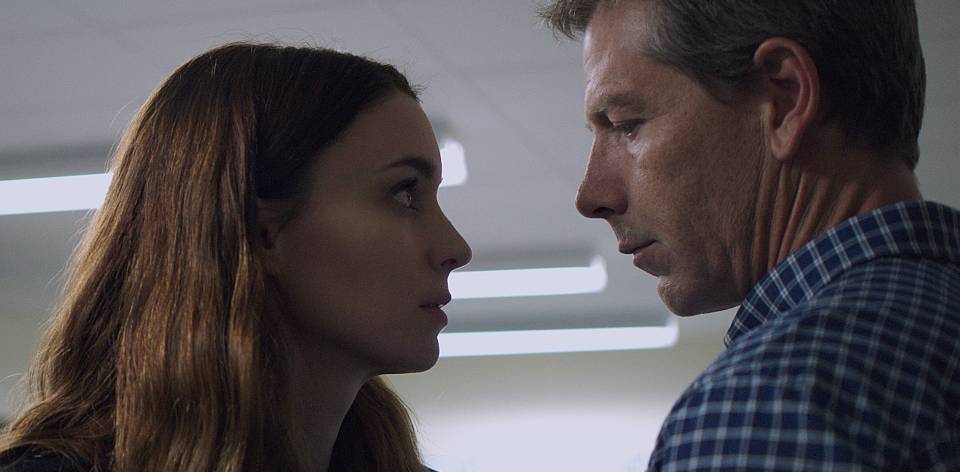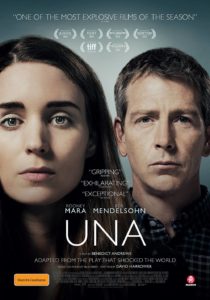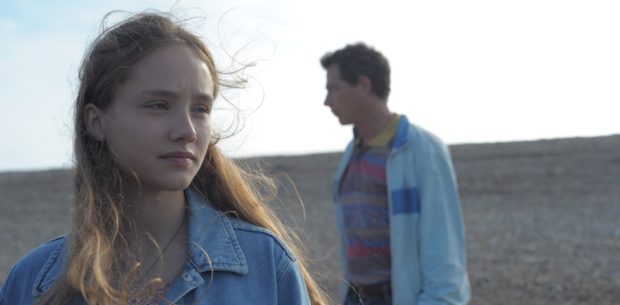UNA has a rich history and pedigree that immediately demands attention. Scottish playwright David Harrower’s play Blackbird, upon which the film is based, won the Laurence Olivier Award for Best New Play and multiple Tony nominations. Cate Blanchett directed the stage version at Sydney Theatre Company in 2007. The director of this film adaptation, Benedict Andrews, is an Australian theatre and film director with a distinguished career. Not bad for a low-key drama focusing on two people.
The titular Una (Rooney Mara) finds Ray (Ben Mendelsohn) at his factory job, and the tension between the two of them is immediately evident. As the story unfolds, we discover that Ray abused Una via a sexual relationship with her fifteen years earlier when she was still a minor. Ray was imprisoned for the crime, and has spent years rebuilding his life with a new identity. Una’s sudden presence threatens to unravel that, especially given that her motivations are unclear.
There’s a mystery at the heart of UNA. While the crime that underlies the backstory is in the past, the game of cat and mouse that begins between Una and Ray raises many questions. As the truth behind their past slowly unfolds, our allegiances shift between the characters. At times, they can reminisce conversationally about ‘old times.’ At others, the combative accusations raise the drama levels significantly.
National treasure Mendelsohn has been showcasing brilliant character studies for decades. Of his recent international work, from Netflix’s Bloodline to the megastardom of Rogue One, it’s the ambiguity of the former that he draws on for the character of Ray. Similarly, Mara makes her eponymous character impossible to read, meaning we can’t share in whatever emotions she is going through.
Visually and narratively, it’s a film a parallels. Their first encounter was at a garden party, as is a climactic scene later in the film. As they run through Ray’s workplace hiding, a slow push of the camera towards some lockers is a very similar to a shot cinematographer Thimios Bakatakis used earlier in the film when the younger duo hid in some bushes. These mounting moments add to the thriller aspect of the film, using the trappings of the genre if not the sensationalism.
Yet the laser focus of the script is a double-edged sword. The very thing that highlights the strengths of the two leads keeps us penned to a single track for the duration, one that also keeps us at arm’s length. While Andrews does attempt to lift the script out of its stage origins, a not inconsiderable job given that this is effectively a two-hander, it never full escapes it.
[stextbox id=”grey” bgcolor=”F2F2F2″ mleft=”5″ mright=”5″ image=”null”]2016 | UK, US, Canada | DIR: Benedict Andrews | WRITERS: David Harrower | CAST: Ben Mendelsohn, Rooney Mara, Riz Ahmed | DISTRIBUTOR: Madman Films (AUS) | RUNNING TIME: 94 minutes | RELEASE DATE: 22 June 2017 (AUS) [/stextbox]






